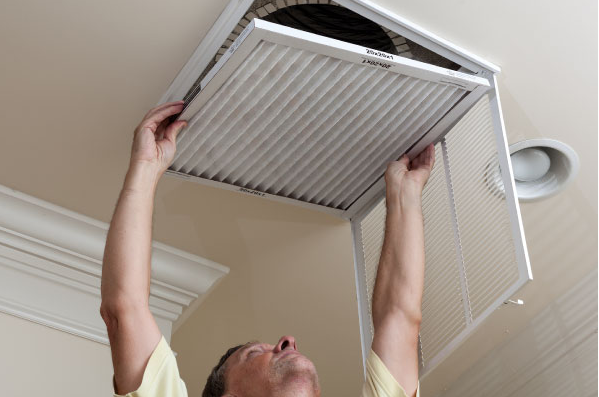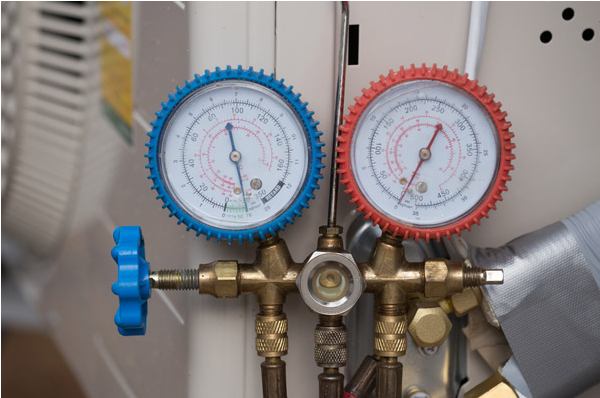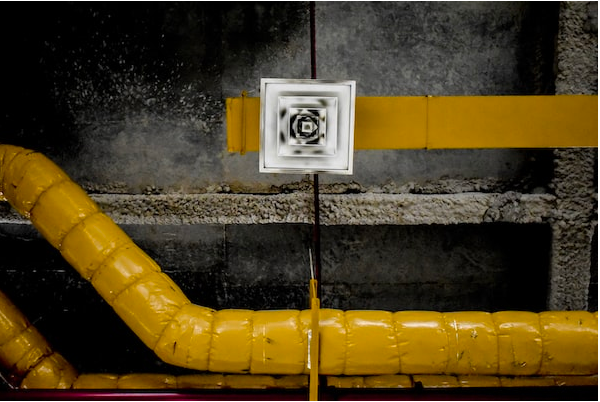Common Causes of Water Dripping From Your AC Vent
If you have noticed water dripping from your HVAC vents, you might be wondering what could be causing the issue. From condensation buildup to dirty air filters, there are many common causes of water dripping from your vents. Keep reading to learn more about the causes of water dripping from AC vent and how to prevent it.
Contents
ToggleDirty Air Filter

Another cause of water dripping from air vents is a dirty air filter. An air filter works to remove dust, dirt, and other particles from the air that flows through the HVAC system. When the air filter becomes clogged with dirt and other particles, the air can no longer flow freely through the system. This causes the air to become pressurized, which in turn causes it to condense into water droplets and then drip from the vents.
To prevent this problem, it is important to check and replace the air filter regularly. If the filter is dirty, it should be replaced with a new one to ensure the air is able to flow freely through the system. HVAC experts suggest changing your air filter at least every three months. Additionally, a dirty air filter can have a huge impact on the indoor air quality in a home and cause problems for those with allergies and asthma.
Clogged Condensate Drain Line
Clogged condensate drain lines are one of the most common causes of water dripping from HVAC vents. These lines are designed to collect and remove condensation from the air conditioning system. When the lines become clogged, the condensation builds up and begins to leak out of the vents. As the water accumulates, it can cause damage to furniture, carpets, and other surfaces in the area.
A buildup of dirt, dust, and debris in the lines often causes this problem. A lack of maintenance or inadequate airflow can cause this. It can also happen if the drain line is too small or if the line is blocked due to tree roots or other foreign objects. In some cases, the condensate pump may malfunction, which can cause the water to back up in the system.
The best way to prevent clogged condensate drain lines is to ensure that the air conditioning system is regularly serviced and maintained. If the lines are blocked, they should be cleared to prevent further buildup.
Refrigerant Leak

A refrigerant leak could be the issue if you have water dripping from HVAC vents. Refrigerant gas is a chemical that is used in air conditioning systems to remove heat from the air and transfer it elsewhere. When a refrigerant leak occurs, it is not able to properly absorb the heat from the air, and this heat is then released as condensation, which can collect and drip from the vents. The most common cause of a refrigerant leak is mall holes and cracks in the tubing inside the AC system. If a refrigerant leak is suspected, it is important to have it inspected by a qualified technician as soon as possible to prevent further damage to the system and to avoid any potential health risks associated with the leak.
Poor Insulation of Ducts

When air ducts are not properly insulated, condensation can form on the inside of the ducts, which then drips from the vents. This is especially common in areas with high humidity, as the condensation is caused by the warm, moist air outside the ducts cooling against the cold metal of the interior walls. Poor insulation of ducts can also cause water to accumulate in the joints and seams, as well as in the air filter, which can also lead to water dripping from the vent. In addition, if the air ducts are not properly sealed and insulated, it can lead to the infiltration of warm, humid outdoor air, which can cause numerous problems inside your home. To prevent this, it is important to ensure that the ducts are well insulated and sealed and that the air filter is regularly changed.
Water dripping from HVAC vents can be caused by a variety of issues, such as poor maintenance, clogged condensate drains, or blocked air filters. It is important to identify and address the root cause of the issue quickly to avoid further water damage or health hazards.
Recommended For You
Unusual Uses of Aspirin – Quick Read
Most Inside
Most Inside offers high-quality recommendations and valuable updates to enhance all aspects of your life, providing premium guidance and enriching experiences.



![The Importance of Driveway Alarms for Home Security [8 Advantages] The Importance of Driveway Alarms for Home Security [8 Advantages]](https://www.mostinside.com/wp-content/uploads/2023/07/driveway-alarms-for-home-125x125.jpg)
